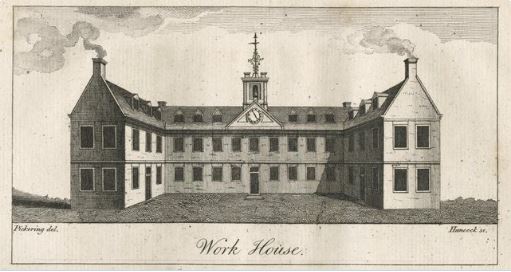Dr Chris Upton remembered with book launch

Last night historians gathered at the Library of Birmingham to celebrate the publication of a major new study, The Birmingham Parish Workhouse, 1730-1840 by Dr Chris Upton.
Dr Upton worked at Newman University for many years before unfortunately passing away in 2015.
He was a historian of the West Midlands for twenty years and championed the restoration of many Midlands heritage sites, wrote copiously on the history of the region and was Reader in Public History at Newman University. His work on the history of working-class housing, which led to the restoration of the Back to Backs in Birmingham, now managed by the National Trust, ignited his interest in the treatment of the poor in the first Birmingham workhouse. Ten years of painstaking archival research has produced this astonishing recreation of the physical and mental world of the ‘lower orders’ in the eighteen- and early-nineteenth-century city.
The book has been edited by his wife, Fiona Tait, and his colleague at Newman University, Dr Ian Cawood.
Both Fiona and Ian were present at the launch which was sold out and spoke about the book and the research which went into it. There were also opportunities to look at archival material used in researching of the book in the Wolfson Centre for Archival Research.
Very little is known of the first workhouse in Birmingham, which was located in Lichfield Street. Even the assumed date of its building, given as 1733 by William Hutton, Birmingham’s first historian, is wrong.

This book is the first attempt to write a history of the workhouse and the ancillary welfare provision for Birmingham, frequently referred to as the ‘Old Poor Law’. The first workhouse remained in operation until 1852 when a new building with its infamous ‘arch of tears’ was constructed in Winson Green and the original building’s history has been overlooked as a result of the association of the word ‘workhouse’ with Nassau Senior and Edwin Chadwick’s ‘New’ Poor Law, implemented in 1834.
This study of welfare in Birmingham in the century before the Poor Law Amendment Act reveals some surprising facts which fly in the face of the scholarly consensus that the old system was incompetently administered and inadequately organised.
To purchase the book or to read more visit University of Hertfordshire Press website.
Photo credit: Birmingham Archives, Library of Birmingham
